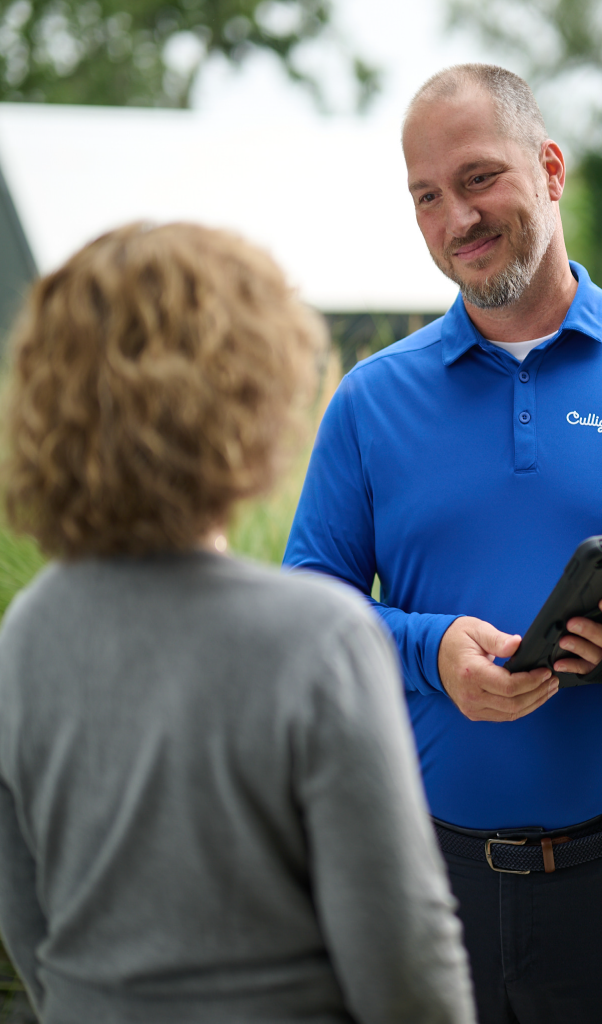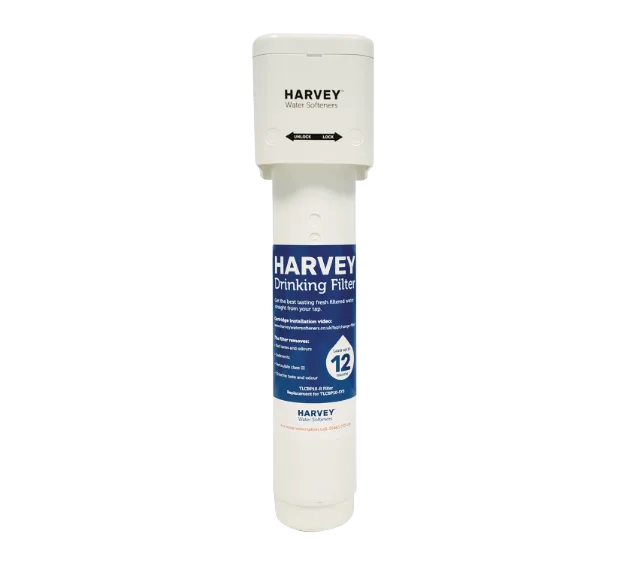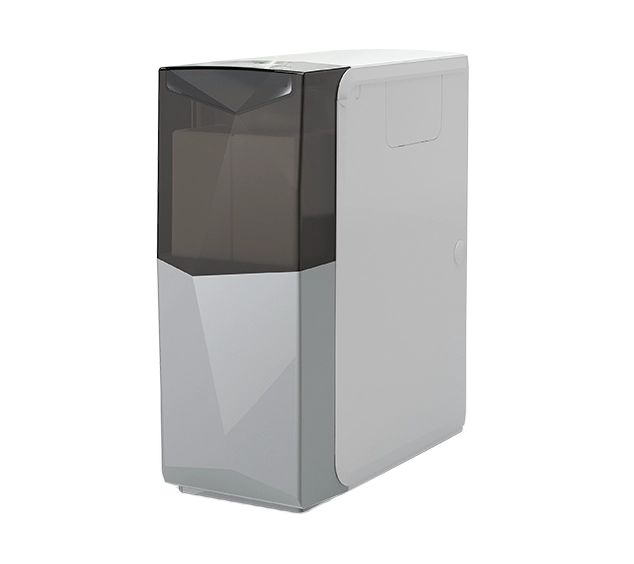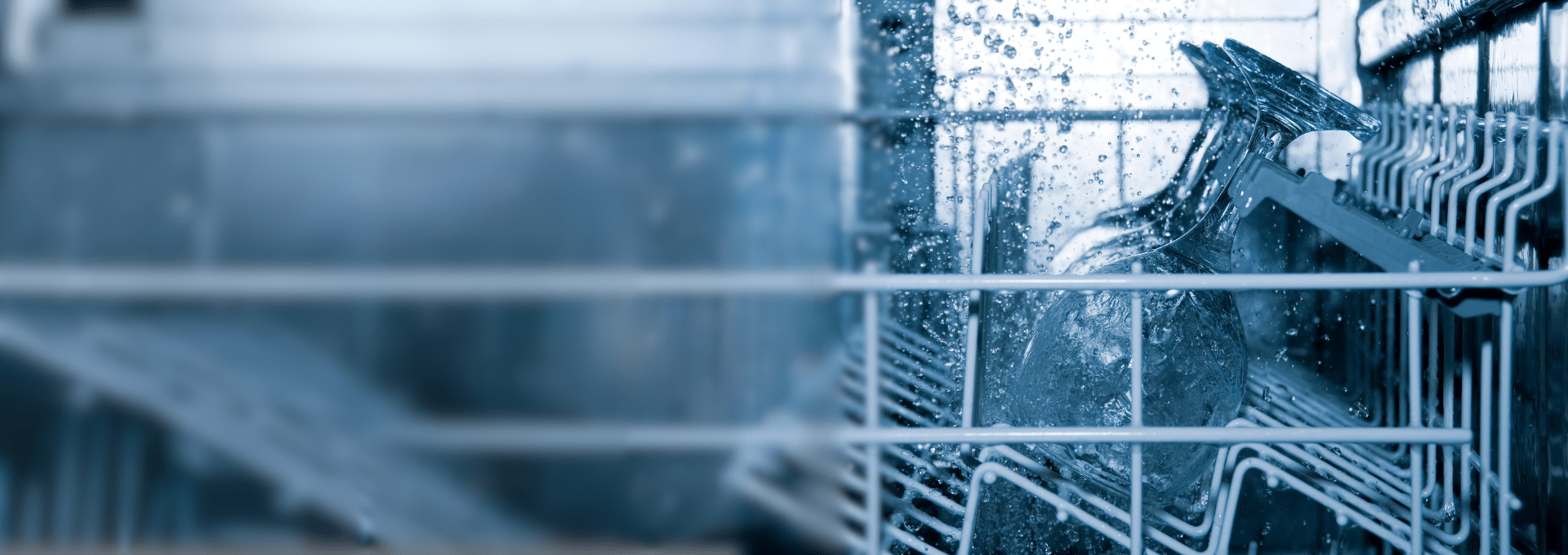
How much water does a dishwasher use?
After cooking a large dinner, nothing feels quite as good as dodging the dishes, loading up your dishwasher and hitting the wash button. However, if you are cost or environmentally conscious, you’ve probably spent some time wondering how much water does a dishwasher uses per load.
It’s a common belief that dishwashers use an excessive amount of water, but what if we told you that may not be true? In this article we look into how much water does a dishwasher use and how this compares to washing your dishes by hand.
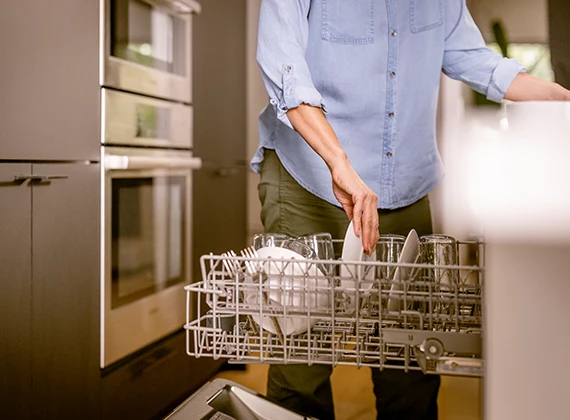
How much water does a dishwasher use in the UK?
In the At Home With Water report completed by the Energy Saving Trust, 5% of domestic water use was attributed to washing dishes – but how many litres of water does your standard dishwasher use per wash?
The average dishwasher in the UK uses about 9.5 litres of water per full load, according to Bosch.
If you have an earlier model, however, water usage may be slightly higher. Pre-2000 models can use up to 25 litres of water per cycle and post-2000 models can use up to 14 litres per cycle. It is only recently that we have seen a decline in water usage through a focus on water-efficiency.

What uses more water: a dishwasher or washing by hand?
Washing dishes by hand uses more water. When comparing the average washing up for a dinner for two, a Which? study found that washing by dishwasher is up to four times more efficient than hand-washing.
- Average water usage in litres for hand washing: 9 litres
- Average water usage in litres for a standard dishwasher: 2.1 litres
It’s a common misconception that hand-washing is more eco-friendly than using a dishwasher, but clearly this isn’t the case!
Just make sure you are using your dishwasher as efficiently as possible by only completing a load when necessary and using the eco setting where possible.

Tips for Saving Water with Your Dishwasher
Dishwashers are already a smart choice for saving water compared to washing up by hand, but how you use them can make a big difference.
With a few small adjustments to your routine, you can reduce water waste even further and get the most out of every cycle. Here are some simple, effective tips to help you make your dishwasher as efficient as possible:
01
Avoid running half-empty cycles that waste both water and energy. Wait until the dishwasher is full to maximise efficiency and reduce unnecessary resource use.
02
Most modern dishwashers have energy- and water-saving modes which are designed to use significantly less water while still delivering excellent cleaning performance.
03
A clogged filter reduces your dishwasher’s performance by restricting water circulation, often leaving dishes dirty and requiring extra cycles that waste both water and energy.
04
Hard water leads to limescale buildup, which can make your dishwasher work less efficiently. A water softener helps keep your appliance running smoothly and reduce water consumption.
Do dishwashers use hot or cold water?
Dishwashers only use hot water to ensure germs can be killed and your dishes are left sparkling clean. The appliance is connected straight to the hot water pipe to ensure the water is as hot as possible. Unfortunately, even with hot water, limescale build up and hard water can leave your glassware gritty or appearing unclean. If you are concerned about the water quality within your dishwasher, consider a water softener to reduce the risk of limescale and cloudy glassware.
Conclusion
In summary, modern dishwashers are a far more water-efficient choice—typically using around 9.5 litres per cycle compared to the significantly higher and variable amounts used in hand‑washing. However, your actual water use may depend on the age, model, and settings of your machine. By choosing eco-programmes, running full loads, skipping pre‑rinsing, and maintaining your appliance, you can boost efficiency even further. For longer-term savings and smoother operation, consider installing a water softener—reducing limescale can help maintain your dishwasher’s peak performance and water usage over time.
Find out more about using softened water in dishwashers in our helpful FAQ section or get in touch with us today.
How Hard Is Your Water?
Unfortunately we do not have data for your area but you could still benefit from a water softener.
Are these hard water issues familiar to you?
You May Also Like
Some more articles we thought you might enjoy...


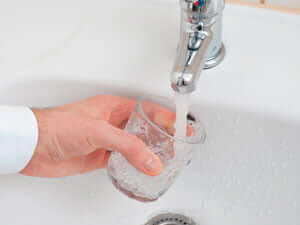
The UK’s #1 selling Water Softener
Once you submit your details, what happens next?
- We’ll call to understand your requirements
- We can provide a water softener demo, either in your home, or virtually online.
- Receive a personalised quote based on your household’s needs.
- Start enjoying the benefits of soft water.
90-Day Money Back Guarantee
Fill out this form and one of the team will be in touch or call our team to speak to one of our experts 01483 753404.
